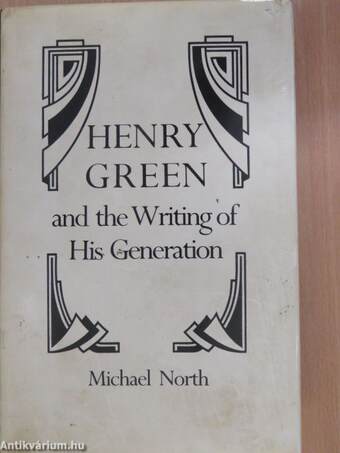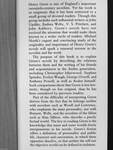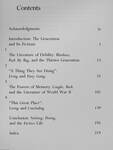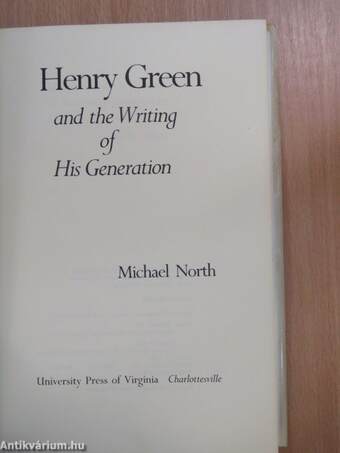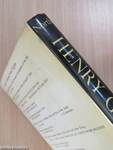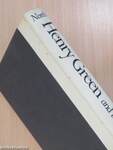1.067.894
kiadvánnyal nyújtjuk Magyarország legnagyobb antikvár könyv-kínálatát

VISSZA
A TETEJÉRE
JAVASLATOKÉszre-
vételek
Henry Green and the Writing of His Generation
| Kiadó: | University Press of Virginia |
|---|---|
| Kiadás helye: | Charlottesville |
| Kiadás éve: | |
| Kötés típusa: | Félvászon |
| Oldalszám: | 222 oldal |
| Sorozatcím: | |
| Kötetszám: | |
| Nyelv: | Angol |
| Méret: | 24 cm x 16 cm |
| ISBN: | 0-8139-1028-5 |
naponta értesítjük a beérkező friss
kiadványokról
naponta értesítjük a beérkező friss
kiadványokról
Fülszöveg
Henry Green is one of England's important
twentieth-century novelists. Yet his work is
so enigmatic that it has been restricted to a
small group of devoted readers. Though this
group includes such influential writers as John
Updike, Eudora Welty, V. S. Pritchett, and
John Ashbery, Green's novels have not
received the attention that would make them
known to a wider circle of readers. Michael
North's cogent and convincing study of the
originality and importance of Henry Green's
novels will spark a renewed interest in the
novelist and his work.
The purpose of this book is to explain
Green's novels by describing the relations
between them and the writing of his friends
and acquaintances in the Auden generation,
including Christopher Isherwood, Stephen
Spender, Evelyn Waugh, George Orwell, and
Anthony Powell, as well as Auden himself.
Such comparisons show that Green is less her-
metic, though no less original, than he has
been considered by previous readers.... Tovább
Fülszöveg
Henry Green is one of England's important
twentieth-century novelists. Yet his work is
so enigmatic that it has been restricted to a
small group of devoted readers. Though this
group includes such influential writers as John
Updike, Eudora Welty, V. S. Pritchett, and
John Ashbery, Green's novels have not
received the attention that would make them
known to a wider circle of readers. Michael
North's cogent and convincing study of the
originality and importance of Henry Green's
novels will spark a renewed interest in the
novelist and his work.
The purpose of this book is to explain
Green's novels by describing the relations
between them and the writing of his friends
and acquaintances in the Auden generation,
including Christopher Isherwood, Stephen
Spender, Evelyn Waugh, George Orwell, and
Anthony Powell, as well as Auden himself.
Such comparisons show that Green is less her-
metic, though no less original, than he has
been considered by previous readers.
Part of the difficulty of interpreting Green
derives from the fact that he belongs neither
with novelists such as Woolf and Lawrence,
who emphasize the inner personality, nor with
Bennett, Wells, and the novelists of the fifties
such as Alan Sillitoe, who describe a purely
factual world. The key to reading Green is the
knowledge that inner and outer worlds freely
interpenetrate in his novels. Green's fiction
offers a definition of personality and public
life, character and convention, in which these
opposites dissolve, so that neither the self nor
the objective world can be defined in isolation. Vissza
Témakörök
- Irodalomtörténet > Írókról, költőkről
- Idegennyelv > Idegennyelvű könyvek > Angol > Irodalomtörténet
- Irodalomtörténet > Világirodalom > Európai irodalom > Angol
- Irodalomtörténet > Irodalomtudomány > Tanulmány, tanulmánykötet
- Irodalomtörténet > Irodalomtudomány > Korszakok > 20. századi
- Irodalomtörténet > Irodalomelmélet > Irodalomkritika



